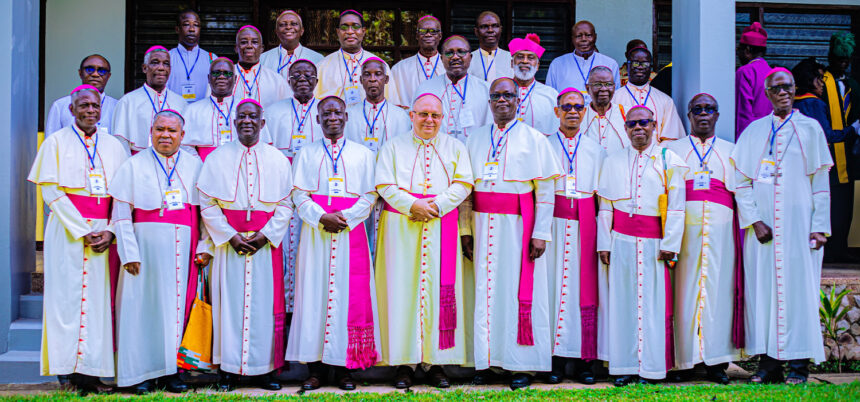ACCRA, Sept. 15, 2025 — The Ghana Catholic Bishops’ Conference has labeled illegal small-scale mining—known locally as galamsey—a “national emergency” demanding immediate, unflinching intervention. In a press statement released on Monday 15 of September, 2025, the statement paints a grim picture of a nation on the brink, where rivers run toxic, forests vanish, and corruption festers unchecked. Signed by Most Rev. Matthew Kwasi Gyamfi, Bishop of Sunyani and president of the conference, the statement calls on President John Dramani Mahama to declare a state of emergency in ravaged mining zones, warning that “delay is betrayal.”
Galamsey, a term derived from “gather them and sell,” refers to unregulated artisanal gold mining that has exploded across Ghana over the past two decades. What began as a desperate bid for survival amid economic hardship has morphed into an ecological catastrophe. Miners, often using rudimentary tools laced with mercury and cyanide, scour riverbeds and forests for gold specks. The fallout is devastating: major waterways like the Pra, Ankobra, Birim, Offin, and Ayensu are choked with silt and chemicals, rendering them unfit for drinking or irrigation. The bishops cite the Ayensu’s turbidity at a staggering 32,000 NTU—far exceeding the Ghana Water Company’s treatment limit of 2,500 NTU—as evidence of irreversible harm.
The conference accuses politicians, chiefs, district executives, religious figures, and even security personnel of complicity—shielding operators for bribes or staying silent for political gain. “This betrayal of trust cuts to the very marrow of our national identity,” the bishops write, summoning implicated figures to “repentance without delay.” They express frustration with President Mahama, noting unsatisfactory responses to their January and May 2025 meetings, and his dismissal of emergency calls during a September 10 press briefing. Galamsey, they argue, now threatens national security by empowering criminal cartels and sparking violent clashes in mining communities.
Beyond alarm, the conference outlines a roadmap for redemption. A state of emergency would enable curfews, land reclamation, and syndicate takedowns. But they insist on more: revised mining laws with harsher penalties, specialized courts for swift prosecutions, and a permanent anti-corruption task force blending security, environmental experts, and local leaders. Mercy tempers justice—desperate miners deserve regulated zones with safeguards, while displaced farmers need land restoration, credit, and training. A nationwide afforestation drive could heal scars and create jobs for youth tempted by the pits.
“We appeal to President Mahama to show the courage of leadership,” the statement urged, demanding prosecutions of the powerful alongside the poor. To Ghanaians, the conference pleaded: Resist quick-wealth illusions that doom future generations to a “desert in place of a homeland.” Chiefs must reclaim their custodial roles; politicians, prioritize nation over party; security forces, defend integrity over complicity.
This prophetic voice from the pulpit arrives at a pivotal moment. Ghana’s gold—Africa’s largest producer—fuels dreams of prosperity, yet galamsey’s toll has sparked protests and bans that fizzle under pressure. As the bishops conclude, invoking Deuteronomy 30:19, the choice is stark: “life or death, blessing or curse.” With God’s grace, they pray, Ghana will choose stewardship over self-destruction.




